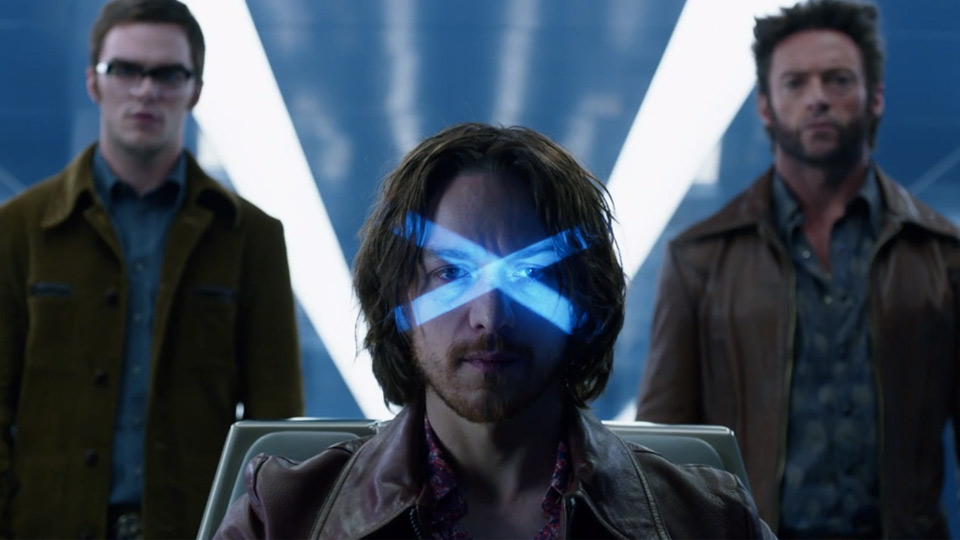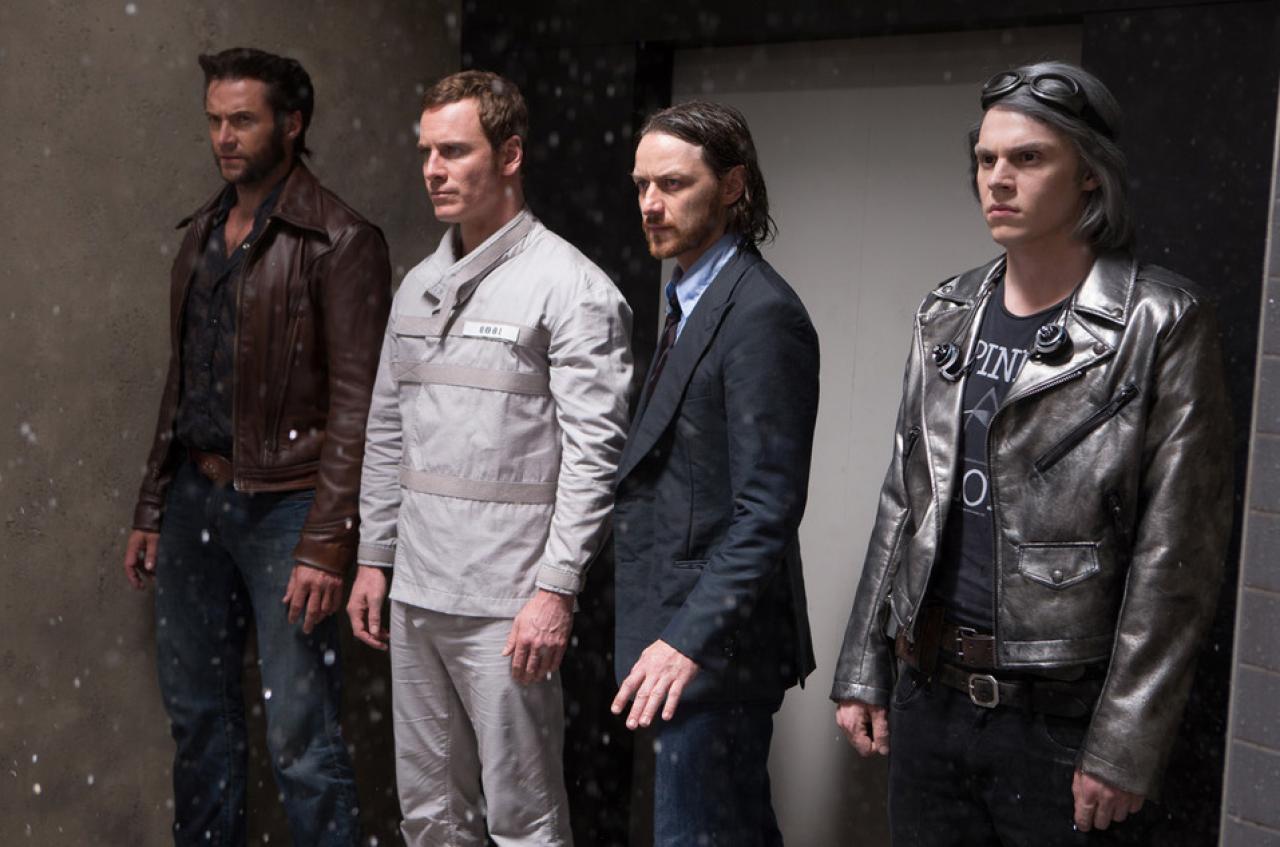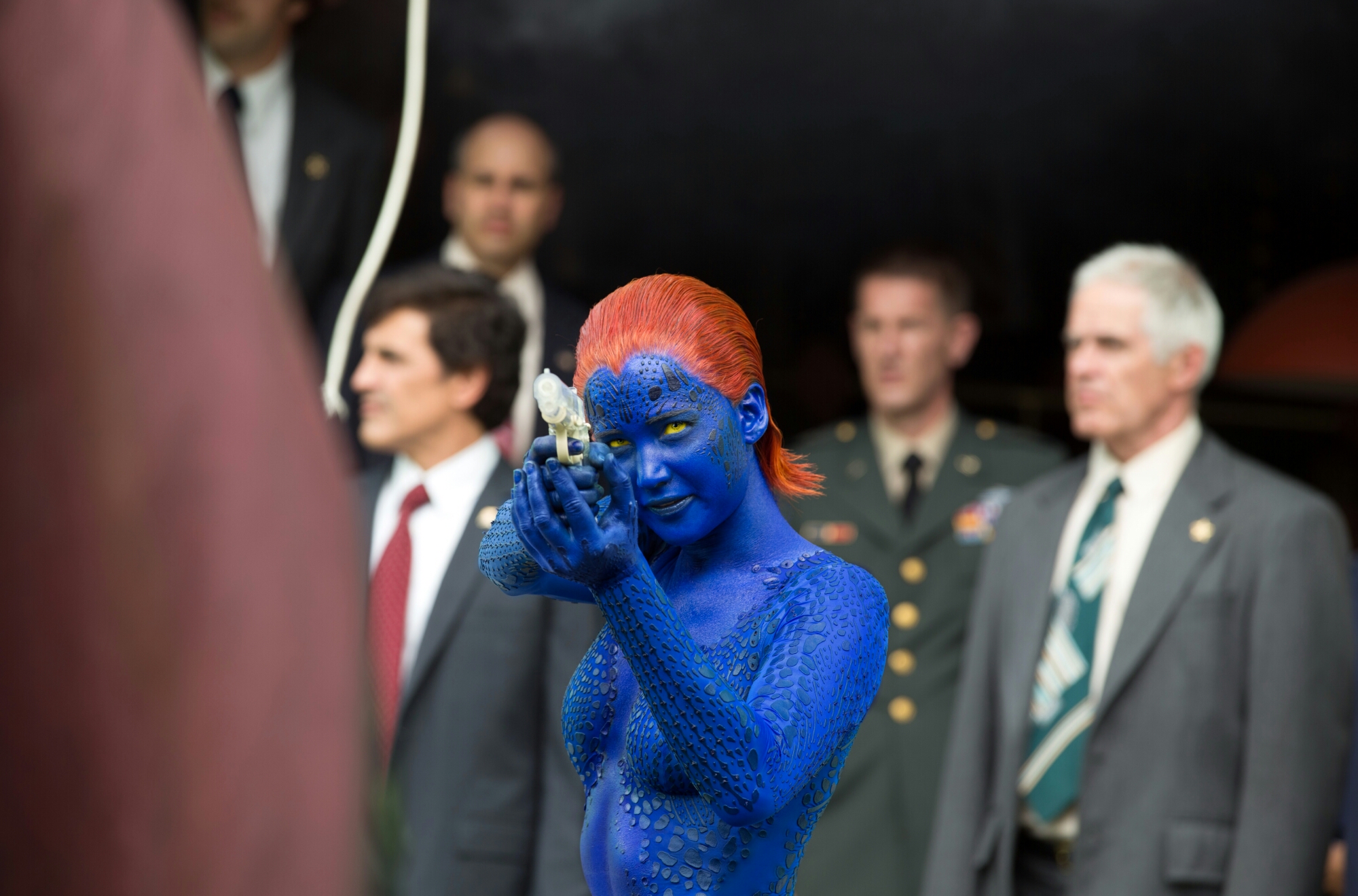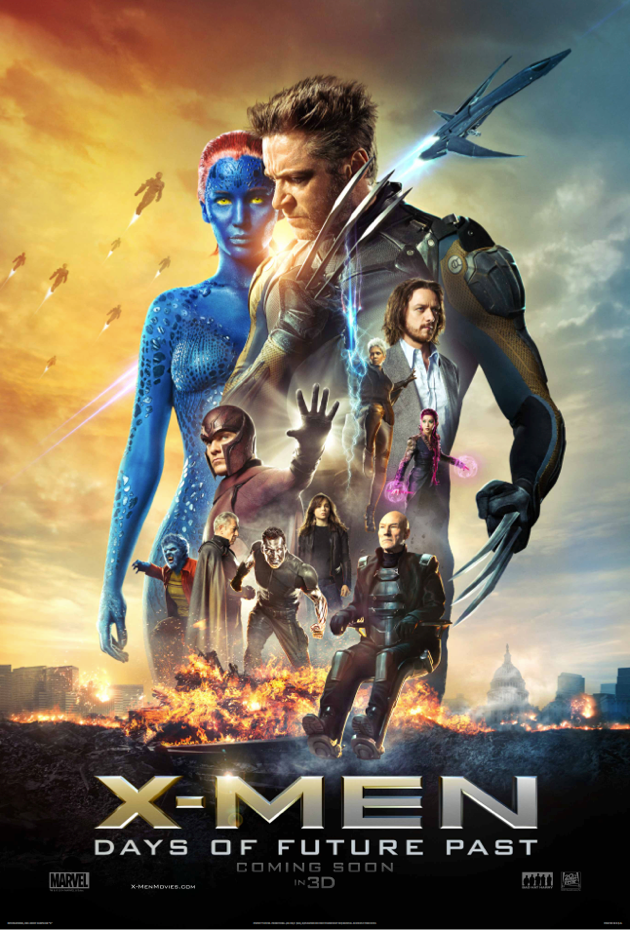It’s been a decade and a half since Bryan Singer’s X-Men started the comic book movie boom that continues unabated today. The first film focused on clarity, economic storytelling and a streamlined structure to bend the unwieldy mythology of the fifty years old superhero franchise into something palatable for mainstream audiences who, mercifully, can’t explain the sordid character biography of Cable off of the top of their collective heads.
After doing two films, passing a third along to Brett Ratner, a fourth to Matthew Vaughn and two spin-offs to Gavin Hood and James Mangold, Singer returns to the world of Marvel’s merry mutants to find a landscape as thorny, complex, and muddled as the comics they came from. For an audience weened on endless reboots and origin tales in their superhero films, Days of Future Past presents the opportunity to see the darker side of cape comics: the art of the shameless retcon.
Using Chris Claremont and John Byrne’s seminal arc as a launching pad, Singer and X3: X-Men United screenwriter Simon Kinberg have crafted a messy, but successful retcon of the cinematic X-universe, using timey wimey sci-fi tropes and a lot of smoke and mirrors to functionally reset the status quo, giving the franchise a new set of legs (a high wire act of storytelling acrobatics not seen since the Fast and Furious franchise). The plot is straightforwardly absurd, as Ellen Page’s Kitty Pryde, at the behest of Patrick Stewart’s Xavier and Ian McKellan’s Magneto, sends Wolverine’s consciousness back in time to 1973, to reunite the newfound Holy Trinity of mutantdom, Xavier and Magneto’s youthful counterparts (still amazingly portrayed by First Class‘s James McAvoy and Michael Fassbender) and Mystique (Jennifer Lawrence).

Xavier returns to Cerebro. (Source)
If that sounds like a mouthful, it’s because it is. The entire movie feels, for better or worse, like the MOST X-Men movie ever made. All it was missing was clones, interstellar space travel, and random Summers siblings.
Singer efficiently splits his time between the dark, moody atmospherics of a future that owes equally to Terminator, The Matrix, and the Holocaust depicted in the introduction of Singer’s first X-film, and an impressively realized period setting (a scene in Vietnam NOT set to Creedence Clearwater Revival’s “Fortunate Son?” The restraint!). Some of the 70s sequences are hindered by being shot digitally and lit in such a way as to expose the artifice of the sets and costume design, sort of like Michael Mann’s Public Enemies, but shitty. Otherwise, the entire affair is gorgeously realized and smartly choreographed, featuring geographically coherent action and some sumptuous spectacle that only throttles beyond reason in the muddy third act.
I’ve spent the weekend telling friends that this is the best X-Men movie ever made, hyperbole I stand by, but I’m seeing people still cling to X2, a movie that is essentially three really strong set pieces that nostalgically stick out in people’s memory.

Evan Peters steals the show as Quicksilver. (Source)
With DOFP, the set pieces are more stunningly realized and the questionable, expository connective tissue that makes up the rest of the film’s run time is less offensive for it, resulting in a more satisfying, immersive experience. It’s not that this movie is considerably more well written than any of its predecessors. It trades in the same inconsistent storytelling and leaps of logic, but wraps it all up in a far more appealing, endearing package.
The biggest criticism I can lob in this film’s direction is how unconcerned it feels with non-geek audiences’ ability to keep up with its ridiculous pace. The other X-Men films all want to capture the strongest aspects of the mythology while keeping them simple enough for non fans to follow along. Much the way Wolverine is sent in the past to undo the mistakes Xavier and Magneto made in their prime, Simon Kinberg’s script seems hellbent on delivering a veritable buffet of fangasm moments, a giant apology for the misfire that was X3.
It’s a risky gameplan, but it reaps dividends. There’s a lot to like, even love, here. Peter Dinklage’s stoic, reliable performance as Sentinel designer Bolivar Trask, the sugarshock joy of every scene Evan Peters’ Quicksilver is in, the stunning acting work on display from McAvoy and Fassbender, two performers who imbue so much gravitas and believability into the proceedings as to perfectly balance out some of the tripe Stewart and McKellan are forced to spew in the name of moving the plot along. For the most part, the film plays as a Best and Worst of The X-Men, highlighting the soap opera, fantasy action, and hard line social commentary that has made the property so hot for so long, chronically undercut by the confusion, inconsistency, and general WTF-ness of it all.
As good as the film’s best moments are, it’s all just so much. I spent a good chunk of the DOFP‘s final third with my mouth agape, cackling like I’d been Joker Gas’d at how over-the-top the movie was comfortable with becoming. The action is some of the best committed to celluloid (or, I guess, pixels?) in the history of the superhero genre, particularly in the future where third string X-Men fight off super, advanced sentinels, using their powers in tandem in a way rarely seen on the big screen. The downside of this, of course, is how so many of the non-core cast members are given short shrift, a line of dialogue and a cool codename but not much else. To have such a diverse line-up in the future sequences but spend the majority of the film following the lily white exploits of the main cast in a movie telling a story about oppression and otherness, seems disingenuous. Maybe this series could learn from Universal’s Fast films, whose dedication to cultivating diversity in their casts stops just short of a Benneton ad, to great results.

Jennifer Lawrence does a fine job as Mystique, but her character is treated like a pawn. (Source)
That the most Gene Rodenberry of all of Stan Lee’s creations often feels like the least diverse or progressive is a hard pill to swallow. Rachel Edidin perfectly captures this problem in her review of the film, tackling the “Macguffinstique” issue head on. It’s laudable that Jennifer Lawrence’s casting as Mystique prompted the filmmakers to place the underrated character in a more prominent role in the mythos, but it’s unfortunate this role is the middle of a triangle between Xavier and Magneto, two men who, the films subconsciously seem to insist, would rather be with one another anyway.
Problematic issues with representation aside, the film manages to make some powerful statements, even if they are lost in the shuffle at times. Nicolas Hoult expertly portrays Hank McCoy as a bit of an Uncle Tom, a mutant who uses his scientific expertise to better hide his true self. McAvoy makes Xavier’s struggle to accept himself and his responsibility to the movement very powerful indeed, giving Marvel’s MLK stand-in a necessary amount of inner turmoil and conflict.
Watching this overblown melting pot of genre trope excercises grounded in some truly moving characterization is a welcome change to the sterile efficiency of earlier, less ambitious X-films. It may be all over the place and it certainly oversteps it’s bounds in terms of what the filmmakers are capable of creating, but it all happens in a compact, exciting experience, a sharp tonal balance of harrowing drama and truly grin worthy fun. By the film’s closing moments, my face was a giant smile, the sort of wanton bliss I felt as a youth, learning to read from old issues of Uncanny X-Men. It’s not the best movie of the year, or the best movie of the season. Hell, it’s not even the best movie in its genre this year or this season. It is, however, an admirable step in the right direction for a film series mired in bad decisions and questionable creative choices.
It’s one of the best times you’re likely to have in a theater this year. It doesn’t make a shit ton of sense, but it doesn’t always have to. It’s the X-Men.


